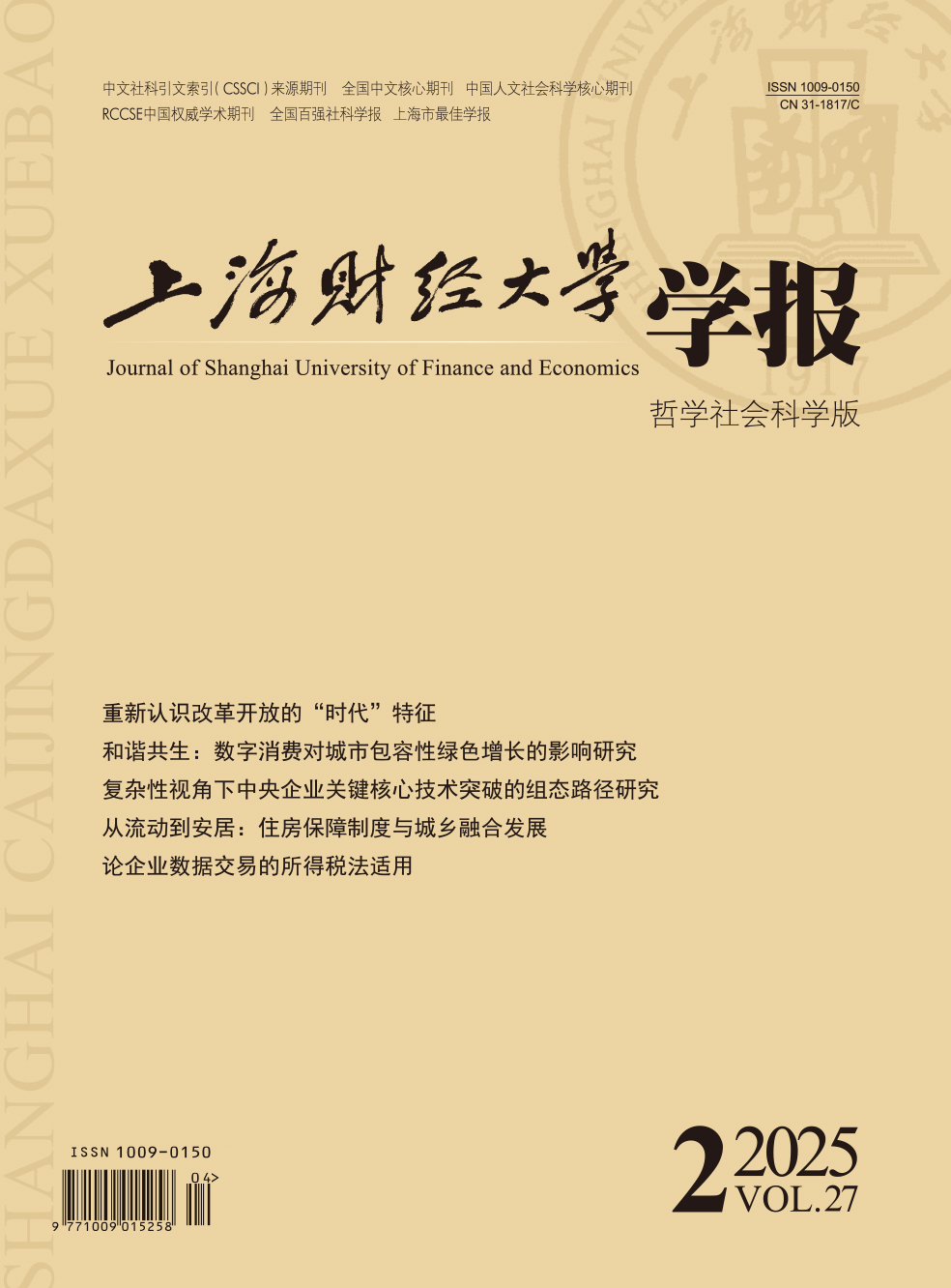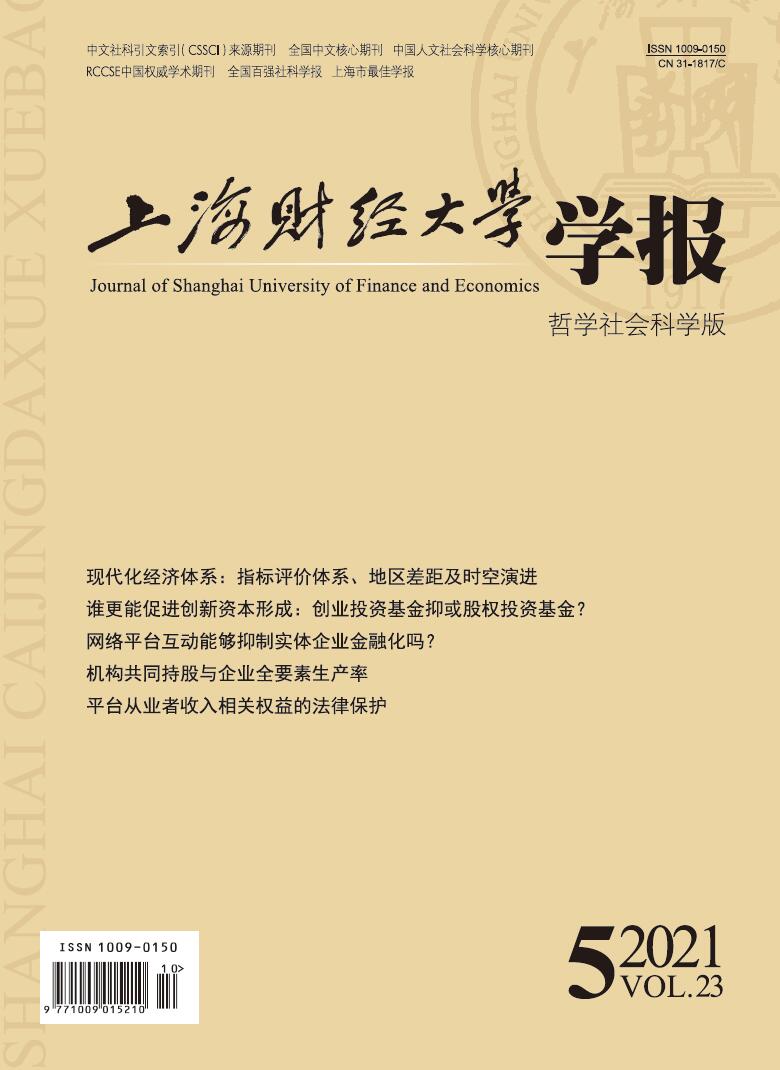在新经济时代背景下,企业的商业模式由“以产品为中心”向“以客户为中心”转型,广告投入对企业品牌塑造和价值提升的重要性日渐凸显。文章以广告投入为研究对象,探究不同盈余目标下的企业费用操控行为。研究结果表明,为实现避免亏损的盈余目标,企业会通过削减广告投入形式的费用操控来达成目标,但并未发现企业在避免利润下滑或满足分析师盈余预测的目标下进行广告投入操控的相关证据。针对避免亏损目标下企业广告投入操控的截面差异的进一步研究表明,广告投入操控在广告投入强度较高、上市时间较短、有分析师跟踪以及税率水平相对较低的企业中更为显著。研究结论不仅对理解不同盈余目标与企业费用操控之间的关系具有参考价值,也对资本市场参与主体和监管部门有所启示。
盈余目标与企业费用操控:来自广告投入的证据
摘要
参考文献
2 陈东彦,于浍,侯玲. 考虑延时效应的供应链动态合作广告策略研究[J]. 管理科学学报,2017,(9). DOI:10.3969/j.issn.1007-9807.2017.09.008
3 戴天婧,张茹,汤谷良. 财务战略驱动企业盈利模式——美国苹果公司轻资产模式案例研究[J]. 会计研究,2012,(11). DOI:10.3969/j.issn.1003-2886.2012.11.005
4 何威风,陈莉萍,刘巍. 业绩考核制度会影响企业盈余管理行为吗[J]. 南开管理评论,2019,(1). DOI:10.3969/j.issn.1008-3448.2019.01.004
5 黄华,何威风,吴玉宇. 央企董事会试点与上市公司盈余管理行为[J]. 会计研究,2020,(7). DOI:10.3969/j.issn.1003-2886.2020.07.006
13 王兰芳,王悦,侯青川. 法制环境、研发“粉饰”行为与绩效[J]. 南开管理评论,2019,(2). DOI:10.3969/j.issn.1008-3448.2019.02.014
20 魏明海. 盈余管理基本理论及其研究述评[J]. 会计研究,2000,(9). DOI:10.3969/j.issn.1003-2886.2000.09.009
22 徐欣,唐清泉. 财务分析师跟踪与企业R&D活动——来自中国证券市场的研究[J]. 金融研究,2010,(12).
28 周泽将,徐硕,马静. 政治关联、事务所背景与盈余管理——基于独立董事视角的经验证据[J]. 审计研究,2017,(6). DOI:10.3969/j.issn.1002-4239.2017.06.006
29 朱红军,王迪,李挺. 真实盈余管理动机下的研发投资决策后果——基于创新和税收的分析视角[J]. 南开管理评论,2016,(4). DOI:10.3969/j.issn.1008-3448.2016.04.001
30 Anderson M C,Banker R D,Janakiraman S N. Are selling,general,and administrative costs “sticky”?[J]. Journal of Accounting Research,2003,41(1):47–63. DOI:10.1111/1475-679X.00095
31 Baber W R,Fairfield P M,Haggard J A. The effect of concern about reported income on discretionary spending decisions:The case of research and development[J]. The Accounting Review,1991,66(4):818–829.
32 Balakrishnan K,Blouin J L,Guay W R. Tax aggressiveness and corporate transparency[J]. The Accounting Review,2019,94(1):45–69. DOI:10.2308/accr-52130
33 Burgstahler D,Dichev I. Earnings management to avoid earnings decreases and losses[J]. Journal of Accounting and Economics,1997,24(1):99–126. DOI:10.1016/S0165-4101(97)00017-7
34 Bushee B J. The influence of institutional investors on myopic R&D investment behavior[J]. The Accounting Review,1998,73(3):305–333.
35 Cheng Q,Lee J,Shevlin T. Internal governance and real earnings management[J]. The Accounting Review,2016,91(4):1051–1085. DOI:10.2308/accr-51275
36 Cheng S J. R&D expenditures and CEO compensation[J]. The Accounting Review,2004,79(2):305–328. DOI:10.2308/accr.2004.79.2.305
37 Cohen D,Mashruwala R,Zach T. The use of advertising activities to meet earnings benchmarks:Evidence from monthly data[J]. Review of Accounting Studies,2010,15(4):808–832. DOI:10.1007/s11142-009-9105-8
38 Dechow P,Ge W L,Schrand C. Understanding earnings quality:A review of the proxies,their determinants and their consequences[J]. Journal of Accounting and Economics,2010,50(2–3):344–401. DOI:10.1016/j.jacceco.2010.09.001
39 Dechow P M,Sloan R G. Executive incentives and the horizon problem:An empirical investigation[J]. Journal of Accounting and Economics,1991,14(1):51–89. DOI:10.1016/0167-7187(91)90058-S
40 Dechow P M,Sloan R G,Sweeney A P. Detecting earnings management[J]. The Accounting Review,1995,70(2):193–225.
41 Graham J R,Harvey C R,Rajgopal S. The economic implications of corporate financial reporting[J]. Journal of Accounting and Economics,2005,40(1–3):3–73. DOI:10.1016/j.jacceco.2005.01.002
42 He J,Tian X. The dark side of analyst coverage:The case of innovation[J]. Journal of Financial Economics,2013,109(3):856–878. DOI:10.1016/j.jfineco.2013.04.001
43 Healy P M. The effect of bonus schemes on accounting decisions[J]. Journal of Accounting and Economics,1985,7(1–3):85–107. DOI:10.1016/0165-4101(85)90029-1
44 Healy P M,Palepu K G. Information asymmetry,corporate disclosure,and the capital markets:A review of the empirical disclosure literature[J]. Journal of Accounting and Economics,2001,31(1–3):405–440. DOI:10.1016/S0165-4101(01)00018-0
45 Heckman J J. Sample selection bias as a specification error[J]. Econometrica,1979,47(1):153–161. DOI:10.2307/1912352
46 Jones J J. Earnings management during import relief investigations[J]. Journal of Accounting Research,1991,29(2):193–228. DOI:10.2307/2491047
47 Kim C,Zhang L D. Corporate political connections and tax aggressiveness[J]. Contemporary Accounting Research,2016,33(1):78–114. DOI:10.1111/1911-3846.12150
48 Lennox C S,Francis J R,Wang Z T. Selection models in accounting research[J]. The Accounting Review,2012,87(2):589–616. DOI:10.2308/accr-10195
50 Nerlove M,Arrow K J. Optimal advertising policy under dynamic conditions[J]. Economica,1962,29(114):129–142. DOI:10.2307/2551549
51 Phillips J,Pincus M,Rego S O. Earnings management:New evidence based on deferred tax expense[J]. The Accounting Review,2003,78(2):491–521. DOI:10.2308/accr.2003.78.2.491
52 Roychowdhury S. Earnings management through real activities manipulation[J]. Journal of Accounting and Economics,2006,42(3):335–370. DOI:10.1016/j.jacceco.2006.01.002
55 Watts R L,Zimmerman J L. Positive accounting theory:A ten year perspective[J]. The Accounting Review,1990,65(1):131–156.
56 Zang A Y. Evidence on the trade-off between real activities manipulation and accrual-based earnings management[J]. The Accounting Review,2012,87(2):675–703. DOI:10.2308/accr-10196
引用本文
王亮亮, 朱芳珍, 王倩楠, 等. 盈余目标与企业费用操控:来自广告投入的证据[J]. 上海财经大学学报, 2021, 23(5): 107-122.
导出参考文献,格式为:





 3898
3898  4293
4293

